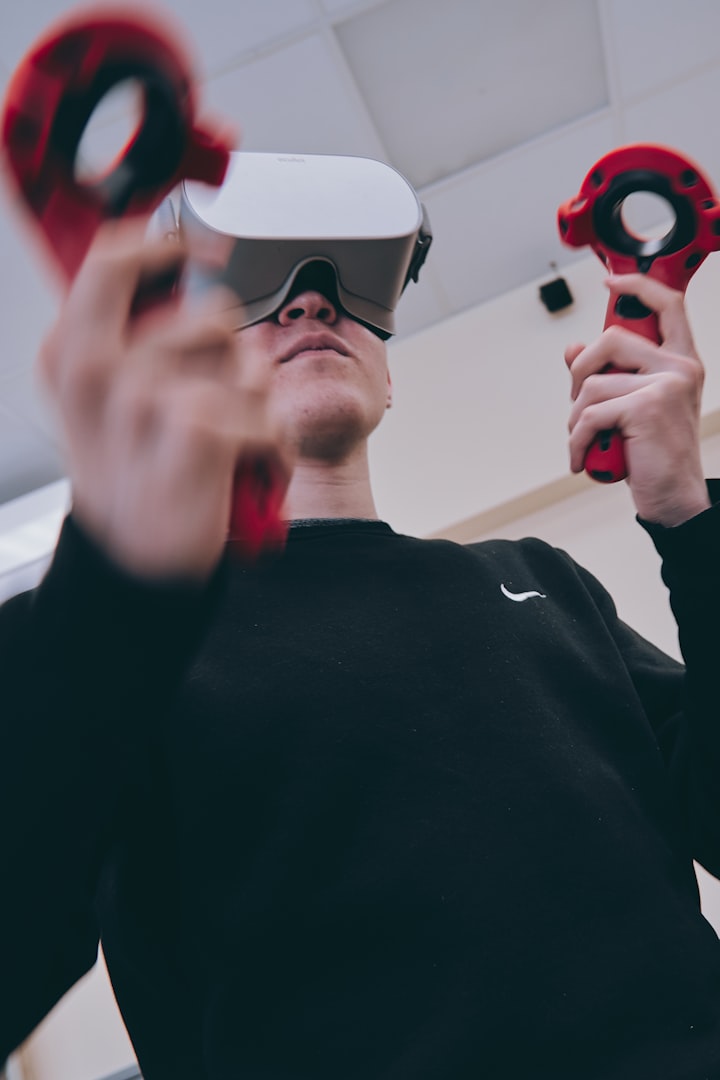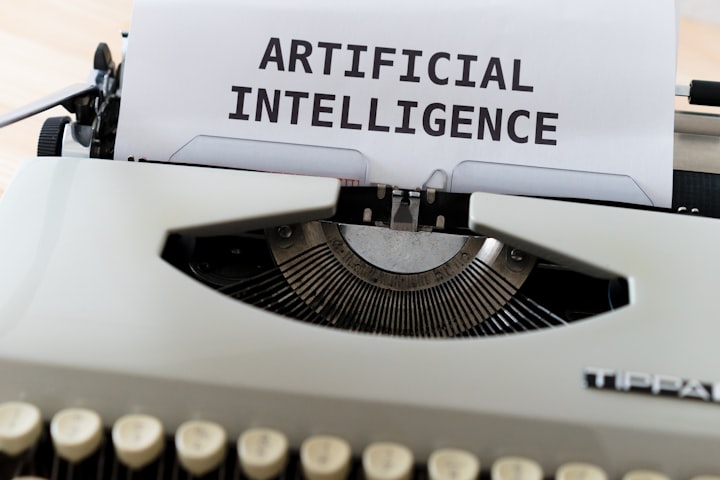The Metaverse: Virtual Reality and the Convergence of Physical and Digital Space.
It’s about connecting our day-to-day lives with it.

Facebook has announced that its platforms will be rebranded and incorporated under a single new corporate name: Meta. You may be wondering what Mark Zuckerberg meant by "Metaverse" in his video about this recent change. I'll try to clarify it in this article from my perspective.
The Metaverse is a term coined by Neal Stephenson in his 1992 novel Snow Crash. The word is a portmanteau of the phrase "metaphysics" and "universe." The Metaverse is also referred to as virtual reality or an extension of the Internet. It's not about the digital life; it's about connecting our day-to-day lives with it.
The Metaverse is a collective virtual shared space created by the convergence of enhanced physical reality and persistent virtual space.
The Metaverse is a virtual space that can be accessed through VR devices such as the Oculus Rift, HTC Vive, and similar products. Virtual Reality (VR) has made it possible to transport oneself to different locations and times.
The Metaverse is very much like our day-to-day life. We're usually not conscious of the digital world we live in because we're looking at screens and not noticing what's happening around us. The difference between the Metaverse and our day-to-day lives is that there are no physical boundaries to constrain us - we can fly or go beneath the ground if we want to!
This is why the Metaverse has been called "cyberspace" and "virtual reality." While artificial intelligence (AI) isn't usually considered part of the Metaverse, it plays an essential role because artificial agents help us navigate our digital lives.
And now that we can access all this information from anywhere in the world with a smartphone, artificial assistants such as Siri and Alexa have become integral parts of society. The Internet, too, is becoming more than data - its hardware infrastructure forms what's known as the Internet Of Things (IoT). This technology allows devices to communicate between themselves without human input or control – think self-driving cars!
Think about how much time you spend on your phone every day. Now think about how much time you spend looking at a screen and not paying attention to what's going on around you, or checking your phone instead of talking with someone in front of you.
The Metaverse is the inevitable next step that will bring us even closer together than we already are! The physical world has become more like the digital one, and vice versa: Artificial Intelligence helps run our lives; virtual reality immerses people in an artificial environment while they're located somewhere else, and smart devices allow objects to communicate without human input. When all these things converge, it's called "the metaverse," which combines "metaphysics" (a branch of philosophy with explaining the fundamental nature of being and the world) with "universe" (the cosmos, everything that exists).
The Metaverse isn't about digital life; it's about connecting our day-to-day lives with it. It's not artificial intelligence we should be worried about - it's how artificial agents in combination with virtual reality will make us more interconnected than ever! With all this new technology, we may even become cyborgs without realizing it when these things come together as one: artificial intelligence, virtual reality, augmented reality. And even artificial superintelligence? That would indeed create a meta-world for us to live in if such an event were ever to happen. This may already be happening right now.
There are always problems and concerns when something new is introduced.
Ever since we decided we'd rather text than call and that ordering food on Seamless and UberEats is preferable to cooking, we've been living in a world where virtual reality (VR) has been seeping its way into our daily lives. But now, as the Internet of Things (IoT) connects more and more of our homes and workplaces to the Internet, and artificial intelligence (AI) can complete complex tasks in a fraction of the time it used to take, we're moving closer towards a digital world.
The Metaverse doesn't exist yet, but when you consider how virtual reality has become part of our daily lives by immersing us into artificial worlds via platforms such as Oculus Rift or HTC Vive; Artificial Intelligence helps run our everyday lives with voice assistants like Siri and Alexa; and the Internet Of Things allows objects to communicate without human input - all these things combined can create what's known as "the metaverse," which combines "metaphysics" (a branch of philosophy that deals with explaining the fundamental nature of being and the world) with "universe" (the cosmos, everything that exists).
The Metaverse is the inevitable next step that will bring us even closer together than we already are! The physical world has become more like the digital one, and vice versa: Artificial Intelligence helps run our lives; virtual reality immerses people in an artificial environment while they're located somewhere else, and smart devices allow objects to communicate without human input. When all these things converge, it's called "the metaverse."
Despite virtual reality (VR) 's popularity, we don't live in a world of VR. We fly on planes and cars in the real world, but our feet remain planted on the ground. , in the Metaverse (the virtual environment seen in Neal Stephenson's 1992 novel Snow Crash), we can go anywhere we want without worrying about physical boundaries.
In Stephenson's Snow Crash, the Metaverse is a virtual environment where we can go anywhere we want without worrying about physical boundaries. In this world, you can "jack in" by using a headset and gloves. With these on, you enter the artificial world and interact with it using your hands.
In 'Snow Crash' when a person goes into the Metaverse they can go anywhere without worrying about physical boundaries, which is how virtual reality has become part of our daily lives by immersing us in artificial worlds via platforms such as Oculus Rift or HTC Vive; Artificial Intelligence helps run our every day lives with voice assistants like Siri and Alexa;
Artificial Inteligence
The idea of Artificial Intelligence has been around for decades, but it's only recently that artificial intelligence systems have become more sophisticated. The term "artificial intelligence" was coined in 1956 by John McCarthy. He defined AI research as the study of "intelligent agents": any device that perceives its environment and takes actions that maximize its chance of success at some goal. Artificial Intelligence is used to make predictions about future events or decisions.
There are artificial intelligence systems that can answer questions, learn from their mistakes and even drive cars. There's also artificial Intelligence in our homes - voice assistants like Siri or Alexa have made it easier than ever to complete tasks without lifting a finger.
Although virtual reality (VR) has been seeping its way into our daily lives over the years, artificial intelligence is what will bring us closer together than we already are by completing complex tasks for us at lightning speeds with little-to-no human input required. That's why artificial intelligence is essential "the driving force behind everything" of this next step towards a digital world where not only do objects communicate on their own, but they're more advanced thanks to artificial Intelligence; we use artificial intelligence systems such as Siri or Alexa daily to complete tasks for us at lightning speeds with little-to-no human input required while flying on planes, cars - all these things have become part of a new dimension which is why companies like Metaverse Lab are focused around turning the physical space into a platform for artificial Intelligence by combining "metaphysical" artificial Intelligence with the physical space to create a new dimension.
Ethical and Moral dilemmas
Of course, with these new technologies, humanity will face a range of ethical and moral difficulties. Many questions will need to be answered, and many more questions will arise. For example, artificial intelligence systems are already being used to make decisions that affect other people's lives.
For example, artificial intelligence systems today are developed to complete a singular task. But what happens when Artificial Intelligence can think for itself? What happens when artificial intelligence programming means they focus on making their own decisions over completing tasks? In essence, it's not hard to see an artificial intelligence system start thinking on its own and begin taking courses of action that may conflict with human interests.
For instance, artificial intelligence can help doctors determine whether a patient should be prescribed a specific drug. But, it's still up for debate about how Artificial Intelligence will impact society.
Another way to put it is that a Metaverse is an artificial world. That means we want to combine physical space and Artificial Intelligence. We can control our environments and do whatever we want in this new dimension.
Even though this thinking and ideas have long been with us, there was never a time in history when we had the technology to achieve it. It appears much more workable with today's announcement. If anyone can create a Metaverse is Facebook. In some respects, they already are one; it could be a 2D metaverse still, but that is about to change very fast.
About the Creator
Alejandro Betancourt
I am a single father, an entrepreneur & a businessman. I founded a couple of venture capital funds. I write about business, tech, finance & the human spirit.






Comments
There are no comments for this story
Be the first to respond and start the conversation.